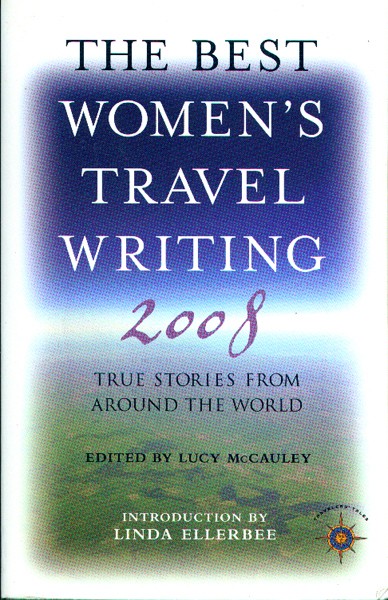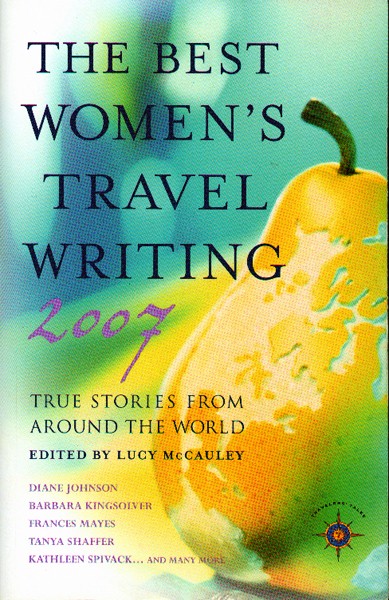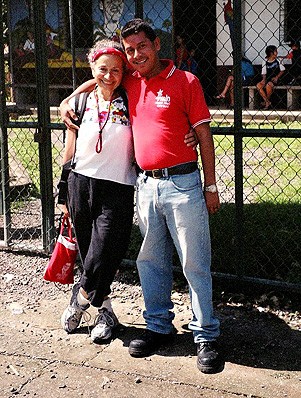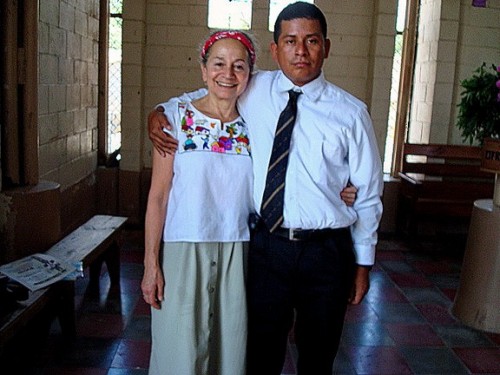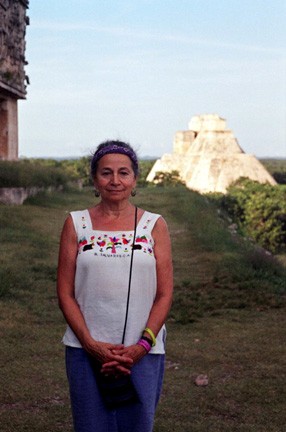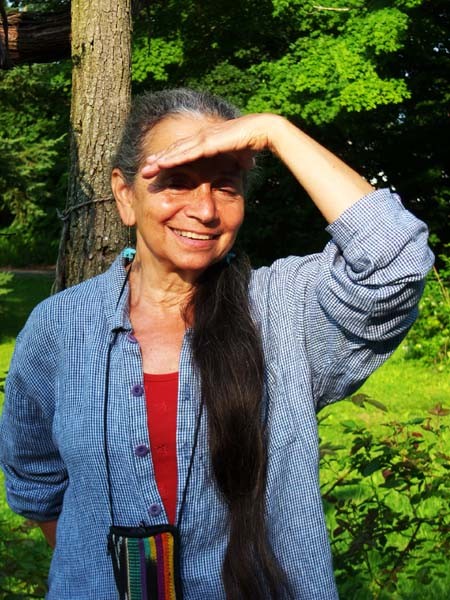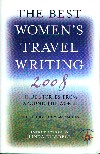2008 Best Women's Travel Writing
H. Susan Freireich Among Featured Writers
By: Astrid Hiemer - Apr 07, 2009
The Best Women's Travel Writing, 2008
True Stories from Around the World
Edited By Lucy McCauley
Published, 2008 by Solas House,Inc.
312 Pages
ISBN 1-932361-55-3 ISSN 1553-054
This is a perfect time to dream about traveling, and one way to search for a destination is to read travel writers, as in this case, to learn about other women's journeys. Many are told in compelling, funny, serious, informative or luscious tales in "The Best Women's Travel Writing 2008". There are more than thirty individual experiences offered and the one million words in this book are worth reading. They illuminate our world.
Let's start with recalling stories of places, that are familiar to me: Christine Sarkis, "Dipping Fork, Flying Girl, Heart Attack" a tale from a tiny Parisian restaurant, where eating cheese fondue and drinking from large glasses of wine leads to body surfing to and from the WC.
Jennifer Carol Cook "Eros in Venice " – oh Venezia ! I promised myself, that if we would ever return to Venice, to also take that gondola ride. We shrugged it off last September. Cook proved to herself that being a single woman and a visitor to the capital of love, can bring about the love affair she was longing for, while steering through small canals. The ride in Eros' gondola, the quietly lapping water waves, the intimacy with which Venice enveloped her at that moment, gave her the sense of belonging and all she was searching for. Oh Venezia !
Gayle Keck, "Caramel et Miel" writes about her romance that started on the internet and became real in France – in the presence of her mother. Well, her mother was not present that night, but she was her very good travel companion. ("You know, I can never tell your father.")
I also reread Alexis Wolff's short story "Silver Dust." She became Mamadou Abdou's silvershmith apprentice in Niger. We recently traveled to Dakar with another Mamadou, who is Senegalese, and lead a small group of American visitors to West Africa. We learned to drum and dance – a little. She learned to hammer out the cross of Agadez – a little.
No, we have not been to New Guinea. Abbie Kozolchyk's encounter with "Tradition, Schmadition" from Papua, New Guinea, is refreshing and very amusing. Michael, a modern and university-educated young man and his university-educated bride will still get married "the old way." His tribe will offer a purchase price of 20 to 40 pigs, thousands of kina (the currency) and a stash of yams. That was the plan, because the couple could not bear to hurt the feelings of their respective elders and tribesmen by having a modern wedding.
Amid the well or exquisitely written travel stories Mei-Ling McNamara's account, "Between the Devil and the Deep Blue See," stands out, since we have returned from Africa. She lived as a development worker for more than two years among the Madagasy population, and she stayed in Madagascar, because of her love for the people. Her vivid word-images and description of her experiences have helped me to process my two weeks long lasting "Fata Morgana" (mirage) of Senegal. Her story will allow me to write and work on a "photo-morgana" (digital images) in the near future.
Momena Sayed from Khandahar, Afghanistan, describes in " Paradise – Lost," the bombing by Russian fighter planes she and her family, neighbors, and the city endured, and her young sister died. She moved to America with her family, but after all these years, she still has recurring nightmares. One must think of the suffering of the population in the Russian war in Afghanistan and of the current situation, in the presence of the American military.
Susan Freireich's essay in the 2008 book, "Which Side Are You On?" – is the only other account of war experiences. She writes about her work in El Salvador during the civil war. In the 2007 volume, however, she was the lonely reporter of life during war times.
Susan, in my mind, is a very special human being. She committed her life's work to serve a community, may it be locally, nationally, or internationally. We have been friends and comrades-at-work since founding and building the Open School in Cambridge, Massachusetts. As part of a group of administrators, teachers, and parents, we started an alternative public school in 1975, where our children received their primary and socially minded education. The school is still open, and we have closely followed each other's life path.
In order to work on public health issues she went back to school and received an M.P.H., a Master's Degree from Boston University in January of 1991. By February of that year, she already lived in El Salvador.
Susan was seriously hurt in a car accident, while working in El Salvador. She came back to the US to heal her body and soul, only to return to the war zone many months later. She fulfilled her contract with Aesculapuis International Medicine (AIM), Washington, D.C., and worked for the Social Secretariat of the Catholic Diocese of the province of Chalatenango, El Salvador, as a Public Health Worker in several different capacities.
Her 2007 chapter in the Best Women's Travel Writing details a harrowing experience, while she and her Salvadoran team partner, Rene, were captured by the military. She was freed after many uncertain hours through intervention by the US embassy, but refused to leave alone. Finally, both were let go and her decision earned her the trust and friendship of her colleague, which, she knew, was missing until then.
In the 2008 volume, Susan writes eloquently that neutrality during war can be more dangerous than taking sides. She decided, under pressure, to transport a young, injured soldier of the FMLN and his superior from the town, Las Vueltas, into the mountains. During war, every action has to be considered from many angles, and helping members of the FMLN was against the Churches' neutrality principle. And she still had not considered all possible consequences of her action.
For several years now, Susan has been working on her war-time memoirs in El Salvador from 1991 to 1993. She received the 1998 Frances Shaw Fellowship at The Ragdale Foundation, and the 2005 Mildred Sherrod Bissinger Memorial Endowment Fellowship at the Djerrasi Resident Artists Program, among other writing support, The book is nearing completion.

